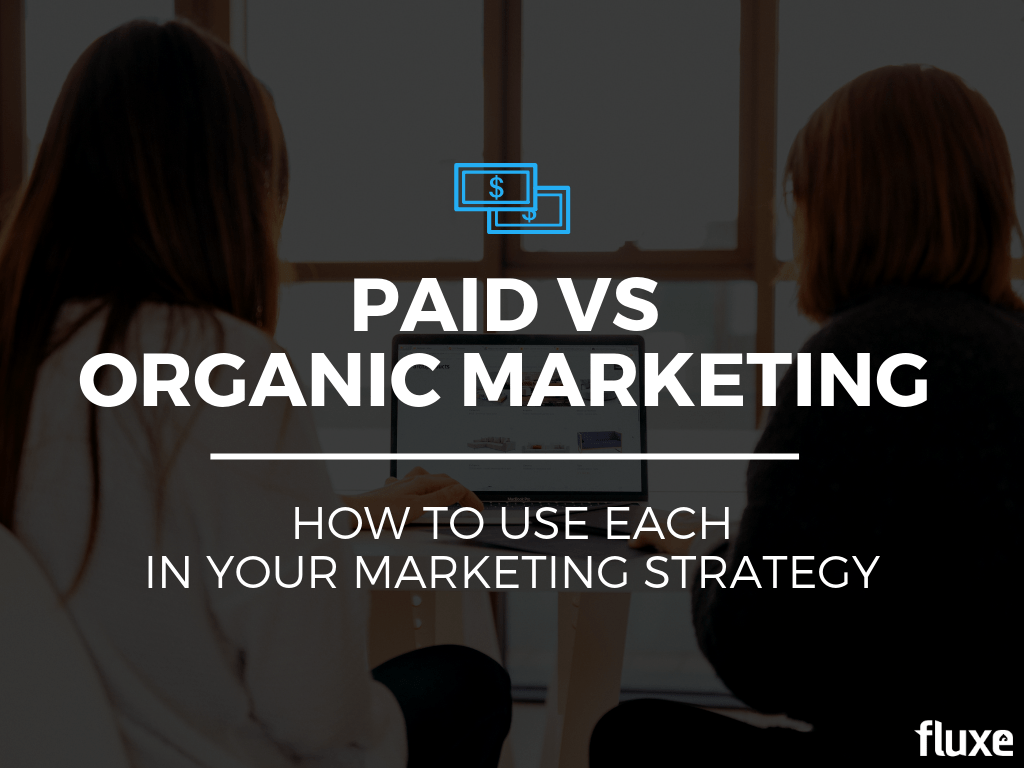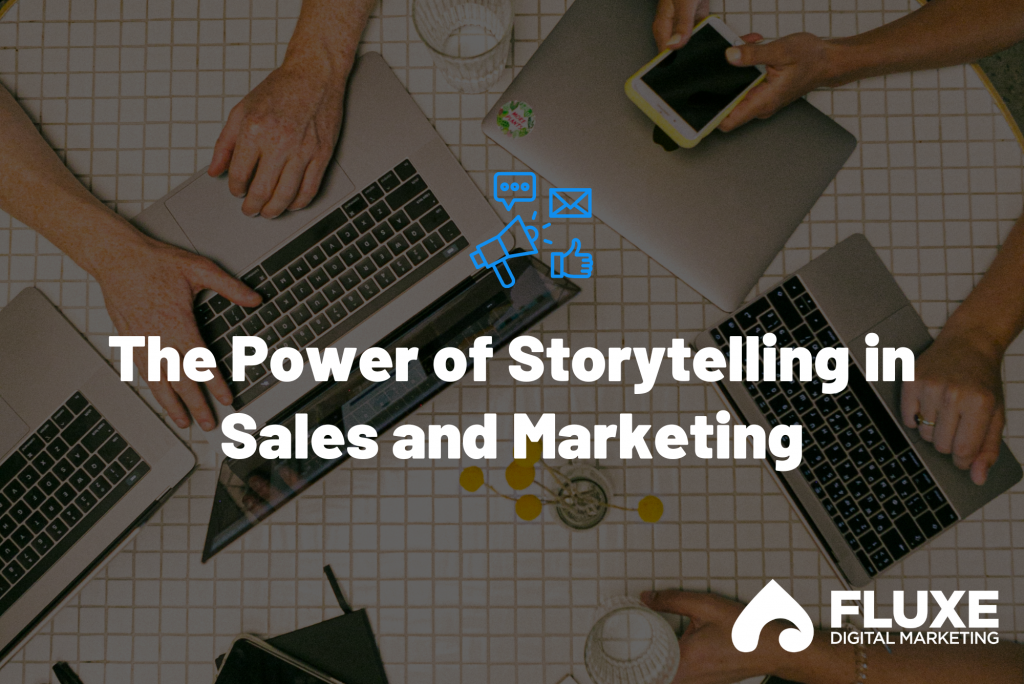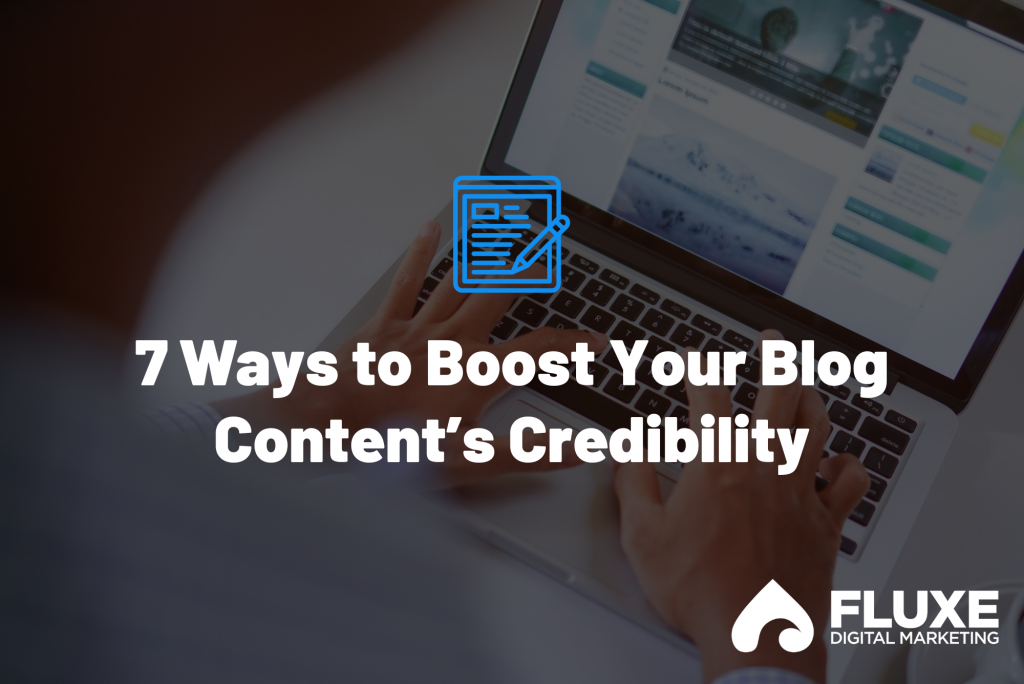Growing your audience over time and without the hassle of social media ads, you can’t guarantee you’ll reach as many people as you think.
Think about it: are you more or less likely to share a piece of content that someone you trust shares, be it an influencer or personal contact?
Word of mouth used to mean face-to-face connections primarily, but now, it could mean a mention on a podcast, blog, or share on Facebook from a friend. This is what we call organic marketing.
Then, there’s the dilemma of how to make it easy for people to find you. If only you could imagine your ideal audience and then drive content directly to them… Well, with paid marketing that’s exactly what you can do. With targeted ads, you can not only better serve your prospects, but you can also find them with a few clicks.
But how do you know when and where to use organic or paid marketing?
Here’s our complete walk-through of each and how to know which one is right for you.
Paid Marketing Explained
Paid traffic is any time you pay for ads or clicks, be it with Google, Facebook, Instagram, LinkedIn, etc.
Like all marketing, there’s normally a goal or intention of using a specific type of outreach. For paid marketing, it can grow your audience through Facebook pixels, email list growth, conversion to products, downloads and trial offers.
Paid Marketing Pros & Cons
Paid marketing is great for short-term because it quickly speeds up your efforts, BUT you must pay to play.
With this marketing, you can use targeted ads to find the smallest niche audiences. And paid traffic is also good for the middle of your sales funnel, especially for re-targeting.
For example, let’s say you downloaded a research paper from a potential vendor. Now you’re on their email list and every day after downloading the paper you see something in your Facebook newsfeed pop-up from them. Not blatant ads, but educational pieces like quick tips, their philosophy, case studies, and videos of their team.
What would that do to your perception of them leading up to your purchase decision? You suddenly feel like you know them and you agree with how they work… wait, have you even met them?
No, they didn’t trick you. They just showed you the right messages, at the exact right times you were looking for things like trust, social proof, credibility, and how-to info along the way. BUT you didn’t have to go digging – they came to you.
HOWEVER, if paid traffic is your only focus and you suddenly stop paying, your traffic and lead sources will dry up.
People who rely on paid search can be a fickle crowd. Often, it’s the ones looking for a quick fix and don’t have the bandwidth for long-term marketing strategies.
Paid Marketing Strategies & Tips
Use organic marketing to better inform your paid ad reach. And vice verse: add paid marketing to increase reach of organic.
When considering paid marketing, remember there are differences across platforms. Google PPC (pay per click) is intent-based targeting which takes into account what a user’s aim is when searching. Facebook ads are interest-targeted, so the audience is found by groups, people or pages they like.

Organic Marketing Explained
Organic marketing is content that is earned (like a press mention) or owned (like a blog post.) It includes blog posts, videos, social media, newsletters, guest posting, etc.
So, if you can find your audience without the legwork, you may wonder why would you even bother? Hear me out:
- Organic marketing is an investment that just keeps growing. Think of it like compound interest. For example, let’s say you choose a selection of keywords you want to use and rank for. At first, the build may be slow, but over time as you promote and improve the content around those keywords, your authority and reach grows too. The more patient you are as you continue to invest, the greater your returns will be.
- Every new post and page you create on your site is a door from Google to your website. The more targeted content you create, the more opportunities your prospects have to find it when they search for answers.
- Organic marketing is a large time investment, but it’s worth it. How many times has someone suggested you check out a YouTube video of some fitness influencer who has millions of subscribers, and you had never heard of them before? The same thing applies to how people find you. It may be a random social share or mention that brings someone to your site. Stay consistent and the right people will find you.
Organic Marketing Pros & Cons
With organic marketing, there’s an added incentive to grow your network and share your content, instead of staying isolated.
It also forces you to become more familiar with your content as you repurpose and re-promote, but you have to put in the work to be seen.
If you’re not consistent in creating, promoting, and sharing new and existing content, you’re leaving fewer opportunities for people to find you.
Rankings aren’t guaranteed (unfortunately), but neither is anything else. That being said, organic search rankings are volatile, but the good news is, you can always test and improve your content to continue improving your rankings.
Organic Marketing Examples to Get You Started
- Ask a blogger or influencer to review your product. If they can film themselves using it, even better.
- Ask industry professionals to share a piece of content with their mailing list and vice versa.
- Get client video testimonials you can share in your email marketing and social channels.
- Guest blog for someone in the same industry whose content aligns with yours.
- Be a guest on a podcast and create a special free download for listeners of that episode.
- Find a site who publishes similar content and ask them to backlink to your work and vice versa.
- Google your name, brand, business and see if blogs or publications have mentioned you and if there are back-linking opportunities there.
- Regularly share your content on social media, so people can share it too – a lot of businesses are terrible at promoting themselves.
Organic Marketing Strategies & Tips
- Optimize for SEO, but always write for humans not for robots. Plus, it’s not the best way to try to engage your audience with posts that are cold and disconnected.
- Organize your site like a library; not a newspaper. Do this using our Cornerstone Content strategy.
- Connect resources on your site together with internal links. This makes it easier for visitors to find what they’re looking for on your site, and it’ll improve SEO at the same time.
- Own the promotion. Assign roles and have a plan for who’s in charge of what step in the process.
- Organic marketing is a long-term strategy, so manage your expectations.
- You already have hundreds of topics you could write about, you may just not realize it.
- Focus on educating your customers – and doing it better than anyone else.
- Pay attention to the FAQ’s your customers ask and create content around better serving your existing audience.
Organic vs Paid Search: How to Use Both
When trying to weigh the benefits of paid vs organic marketing, start with organic.
Organic marketing should be a constant part of your process, and once you figure out what converts well, then you can look at paid. Use organic to test what works in your funnel and then use paid search to increase those efforts.
Don’t make the mistake of using paid first. It’s an expensive lesson to learn.
So, how are you using organic and paid marketing for your business?



